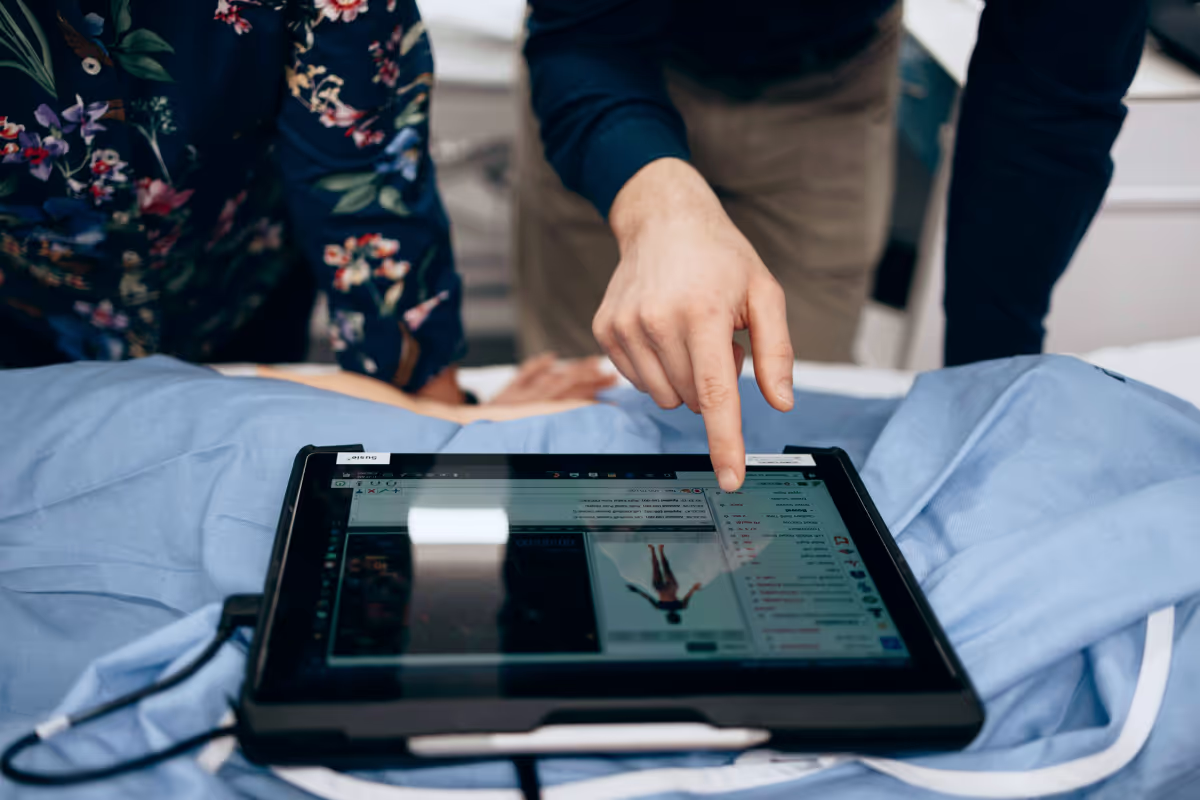The world is entrapped in the pandemic spiral with no end in sight. Thought leaders predict periodic lockdowns, remote collaboration, and digital corporate cultures will be a common fixture in the foreseeable future. Regardless of how the pandemic story unfolds, one thing is clear: businesses have to adapt their operations to the new normal of “remote” work.
Uptech has experience working as a distributed team, so the lockdown did not catch us unprepared. This article unveils some advice on remote collaboration that we have derived from our experience of telecommuting.
Risks Related to Remote Collaboration
While remote collaboration may seem like a millennial's dream, it still poses particular risks for the team's productivity. Here they are:
- Work-from-home mode can affect your team’s productivity by either slacking them off or keeping them busy 24/7;
- Decrease in trust relationship in the team due to the lack of physical interaction with team members. The remote regime weakens bonds and lowers the trust between colleagues, making collaboration/communication difficult;
- Delay in communication and decision making, long feedback loop, possible overtimes or underperformance, burnout;
- Managers do not have full visibility of the workflow.

Expect a demanding learning curve when tackling these challenges. But the benefits are worth it if you do. Here they are:
- More flexibility and freedom in organizing the workflow;
- Increased productivity, provided that specific rules are met;
- Health benefits: remote regime makes it easier to maintain or start a healthy lifestyle, keep to a diet or take fitness breaks during a daily routine;
- Less time for commute, more time for life.
10 Uptech’s Tips for Better Efficiency in Working with Remote Teams
The shelter-in-place regime has made adjustments to our team management routine. As our homes have become our offices, the working routine now dwells in the digital realm. Here are the basics of a remote work shift that we have taken into account.
Take care of workplace set-up for everyone
The remote regime is the best time to show care and respect for your employees. Start with simple things: a computer, a monitor, or even a table. Make sure everyone from your team is fully equipped for telecommuting. To that end, you can allocate a part of the company’s funds for the workplace setup. You can also organize the transfer of the necessary technical equipment from the office to the employees’ homes.
Use the power of technology
It seems like the tech world has been prepared for the massive lockdown long before it came along. Today we have a variety of team management and communication apps for smooth remote collaboration. At Uptech, we use Slack for day-to-day operations, Jira for planning and task management, Zoom and Google Meet for video conferencing, Figma for design construction, and Miro for real-time teamwork with a whiteboard. And check out one more tool MightyCall for video calls too, in case you are tired of Zoom or Meets.
We also use Plai – a performance management tool built by Uptech to align our teams’ OKRs. It helps us to cultivate a culture of feedback and growth.
Organize regular team meetings for all company members
It has always been a part of our routine to hold weekly or biweekly summary meetings. Since the lockdown started, our summary meetings take place online via Zoom. They are essential to keep the whole team aware of the developments in every project and department.
Summary meetings boost the team spirit and are the best option to round up a tough working week.
Hold regular check-ins
Besides team summary meetings, we also value the importance of personal 1:1. At these meetings, every team member can communicate with his/her mentor on the ongoing tasks and plan the future backlog. This kind of meeting aims to support a team member by providing help or giving valuable feedback for professionals to grow.
Plan structured daily check-ins
Personal check-ins help you sustain personal contact with your team members while discussing the working routine's challenges and plans. For higher productivity, check-ins should be structured and well-planned so that both the manager and team member know the meeting's purpose.
Planned timelines for features implementation
In a remote working setup, it is challenging to keep the lifestyles of a large team in sync. That is why it is vital to determine timelines and expected results for each task so that everyone is aware of expectations. We use Jira to set up task boards for every team member and store task details, expected results, estimations.
Keep the stakeholders involved
Product development involves many professionals, with the client being a top priority. We always make sure there is no communication block between a client and the team. To that end, we have figured out the following rules:
- Add the client to the main chat with the team;
- Share JIRA so that the client can track the workflow in real-time;
- Hold regular check-ins with a client;
- Setup recurring demo calls to show development results;
- Have regular 1-1 with client to share and gather feedback;
- We always share a test-version of a product with a client after each demo.
Keep the team involved
There's more to doing actual work in a physical office. Occasionally, you'll be caught up in the 'water cooler talk' or engaged in friendly banter during lunch. You can have a similar vibe in a remote workspace.
Take a while at 1:1s or team meetings to ask about your teammates' lifestyle, challenges and benefits they experienced during the pandemic. More importantly, check out if they're in good health.
Sustain corporate culture
The pandemic has become a trial for many companies and put their values to test. The employees could now see if the company could put its manifested values into actions.
The cornerstones of Uptech’s corporate culture are the principles of freedom and responsibility. We give freedom to the people we hire, trusting them to be responsible and self-managing. People tend to be more initiative and committed when they are trusted and cared.
When the lockdown was imposed, Uptech people longed to communicate with each other. We responded to the need by creating the necessary platforms for people to stay in touch.
For one, we have started several Slack channels like #kitchen and #games. There we can simply have a small talk, join a computer game or stay together online to keep each other. While quarantining during lockdown is challenging, we've managed to turn it around and reinforced our team spirit and dedication.
Encourage transparency
This principle underpins everything we do that concerns both colleagues and clients. In that, we openly share information inside our team and strive to be utterly honest with our clients. During years of work, we have cultivated the culture of feedback – a healthy environment where everyone asks someone’s opinion on his/her work.
In our relations with clients, transparency is also a top priority. To ensure transparency, we take the following measures:
- Before the project inception, we ensure the relevance of the pre-sale agreements, discuss the risks, timelines, and plans for the near future;
- Make our partners a part of every stage of product development – from design prototyping to code writing;
- Hold regular meetings, where we discuss updates, blockers, and suggestions.
Summary
Shifting to remote work can be a struggle for a company. However, remote collaboration could take you up a notch in productivity and management if you follow specific rules and tips.
At Uptech we have built a team of people, sharing the value of freedom and responsibility. This is why going remote was more like an anticipated challenge than a stressful problem for us.
Whether working remotely or at the office, our team always craves for new projects and promising ideas. Do not hesitate to contact us if you have one on your mind.




































































































